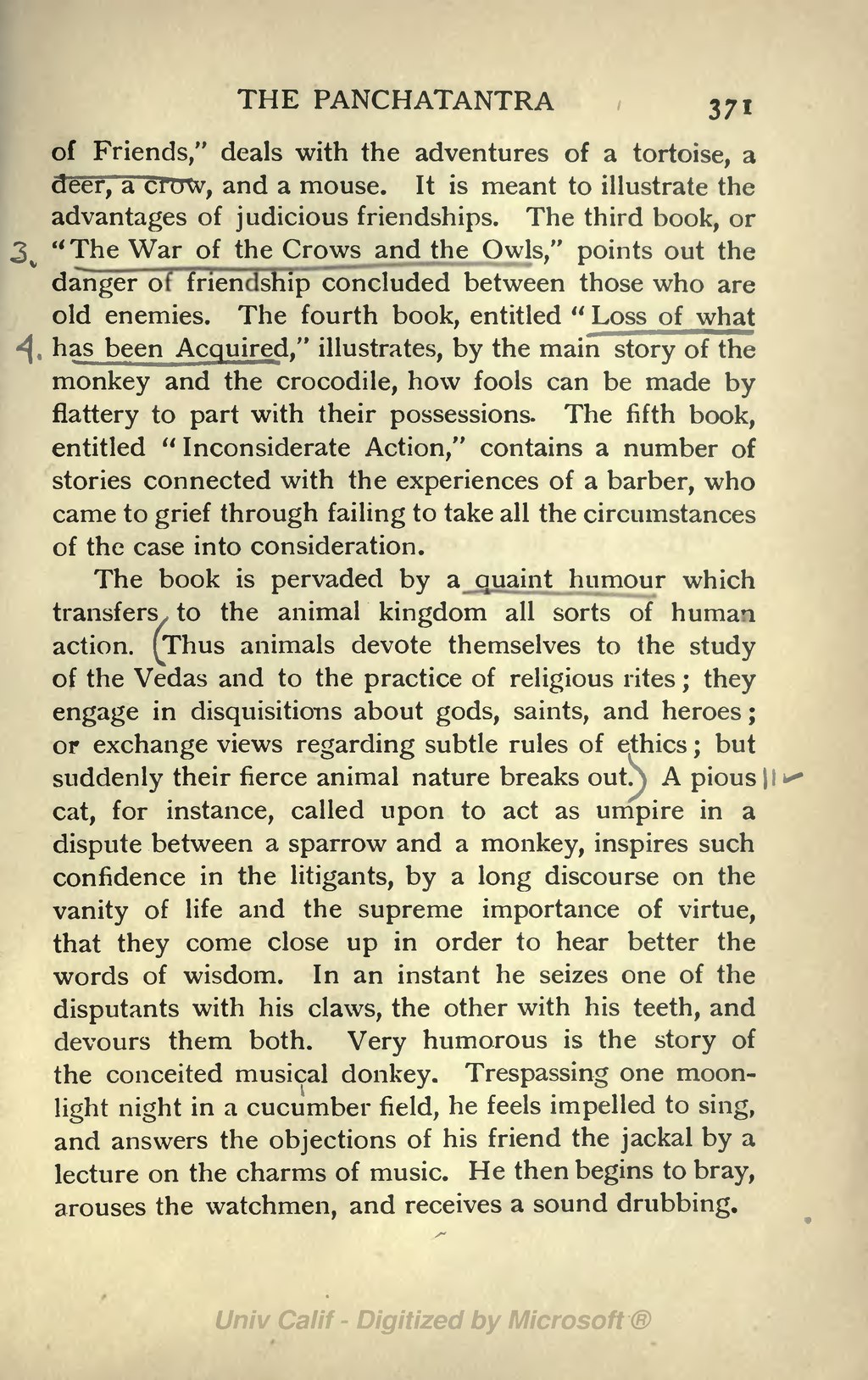of Friends," deals with the adventures of a tortoise, a deer, a crow, and a mouse. It is meant to illustrate the advantages of judicious friendships. The third book, or "The War of the Crows and the Owls," points out the danger of friendship concluded between those who are old enemies. The fourth book, entitled "Loss of what has been Acquired," illustrates, by the main story of the monkey and the crocodile, how fools can be made by flattery to part with their possessions. The fifth book, entitled "Inconsiderate Action," contains a number of stories connected with the experiences of a barber, who came to grief through failing to take all the circumstances of the case into consideration.
The book is pervaded by a quaint humour which transfers to the animal kingdom all sorts of human action. Thus animals devote themselves to the study of the Vedas and to the practice of religious rites; they engage in disquisitions about gods, saints, and heroes; or exchange views regarding subtle rules of ethics; but suddenly their fierce animal nature breaks out. A pious cat, for instance, called upon to act as umpire in a dispute between a sparrow and a monkey, inspires such confidence in the litigants, by a long discourse on the vanity of life and the supreme importance of virtue, that they come close up in order to hear better the words of wisdom. In an instant he seizes one of the disputants with his claws, the other with his teeth, and devours them both. Very humorous is the story of the conceited musical donkey. Trespassing one moonlight night in a cucumber field, he feels impelled to sing, and answers the objections of his friend the jackal by a lecture on the charms of music. He then begins to bray, arouses the watchmen, and receives a sound drubbing.
